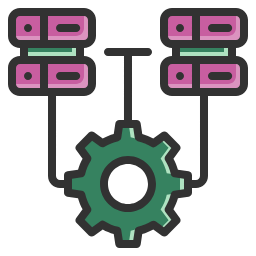How Agentic AI Helps
Agentic AI represents the next frontier beyond generative and predictive models: systems that act autonomously to achieve defined goals with minimal human intervention. This shift brings profound advantages for businesses ready to embrace autonomy at scale:
IBM, denodo.com
Autonomy & Proactivity:
Unlike models that require explicit prompts, agentic AI agents perceive context, plan multi-step workflows, and execute tasks end-to-end—reducing manual oversight and accelerating outcomes
IBM, skyflow.com
Adaptive Learning:
Agents continuously learn from interactions and feedback, refining decisions over time. This adaptability ensures solutions improve as environments evolve, leading to sustained performance gains
NVIDIA
Efficiency & Scalability:
By automating complex processes—such as orchestrating data ingestion, decision-making, and external tool integration—agentic AI can significantly cut operational costs and free human teams for higher-value work
skyflow.com
Strategic Differentiation:
Early adopters of agentic AI position themselves ahead of competitors: automating customer interactions, optimizing workflows, and delivering personalized experiences at scale. Gartner predicts one-third of GenAI interactions will use autonomous agents by 2028, underlining the urgency to act
NVIDIA
End-to-End Automation:
From ideation through execution and continuous improvement, agentic AI enables end-to-end workflows—e.g., autonomously booking travel, drafting reports, synthesizing insights, and integrating with enterprise systems—ushering in a new era of business agility
Key Challenges
Implementing agentic AI involves several complexities that Datamaze helps you navigate
.png)
Complex Orchestration
Designing multi-agent workflows and tool integrations requires deep architectural planning and robust orchestration logic

Agents need reliable access to structured and unstructured data, secure APIs, and well-defined operational contexts to perform tasks effectively
Data & Environment Readiness

Building, fine-tuning, and maintaining autonomous agents involves expertise in AI architectures, reinforcement learning, prompt engineering, and software integration
Skill Gaps

Trust & Control
Ensuring agents act within acceptable boundaries demands guardrails, explainability, and real-time monitoring to prevent unintended actions

Ethical & Compliance Considerations
Autonomous decision-making must adhere to legal, ethical, and industry-specific regulations, requiring rigorous governance frameworks
Our Key Capabilities

Agent Architecture & Orchestration
Design multi-agent systems where each agent handles subtasks coordinated by a reasoning engine (often an LLM-based orchestrator)

Perception & Data Integration
Enable agents to ingest and interpret data from databases, APIs, sensors, and external tools to perceive their environment accurately
.png)
Planning & Decision-Making
Implement reasoning modules that generate step-by-step plans to reach goals, adapting on the fly as conditions change

Action & Tool Invocation
Integrate agents with external systems via APIs, robotic process automation (RPA), or microservices.

Monitoring & Governance
Deploy monitoring dashboards, alerting, and logging to track agent behavior, performance metrics, and compliance;

Scalable Deployment
Package agents as containerized services or serverless functions, with auto-scaling and high availability for enterprise-grade reliability
Our Process
How We Work with You


Collaborate to pinpoint high-value autonomous tasks and define clear objectives for agent deployment.
1.
Identify
& Prioritize


Inventory relevant data sources and set up secure access (APIs, databases) with governance controls for safe agent operation.
2.
Prepare
& Secure Data


Architect multi-agent workflows, implement reasoning engines (LLM orchestration, RL modules), and integrate external tools for end-to-end task automation.
3.
Develop &
Orchestrate Agents


Launch agents as scalable, containerized services or serverless functions. Integrate with existing systems (CRM, ERP, EHR) and set up monitoring pipelines.
4.
Deploy &
Integrate


Continuously track agent performance, collect feedback, retrain models or adjust workflows, and refine guardrails
5.
Monitor &
Optimize
Where It Works
Use Cases Across Industries
Autonomous Inventory Replenishment Agent
An AI agent continuously monitors sales data, predicts stock shortages, and autonomously places replenishment orders through supplier APIs—ensuring optimal inventory levels without manual intervention.
Personal Shopping Concierge
Agentic AI interacts with customer preferences and live inventory to autonomously suggest, reserve, and even arrange delivery of products—providing a hands-free shopping experience.
Dynamic Promotion Orchestrator
An agent analyzes real-time demand, competitor pricing, and marketing calendar, then autonomously launches targeted promotions and adjusts offers across channels to maximize revenue.
Customer Success Story
Our case study highlights measurable outcomes, industry-specific challenges, and the innovative strategies that set us apart.

Ethical AI and Governance
We embed fairness, transparency, and privacy by design

Explainability
Provide logs and explanations of agent reasoning paths to ensure transparency.

Bias & Fairness Audits
Regularly test decision outputs to detect and mitigate unintended biases.

Security & Compliance
Enforce least-privilege access, encryption, and audit trails for all data and actions.

Guardrails & Human-in-the-Loop
Embed checkpoints where agents defer to human review for high-risk decisions.

Continuous Oversight
Maintain dashboards and alerting to detect anomalous agent behavior and intervene promptly



